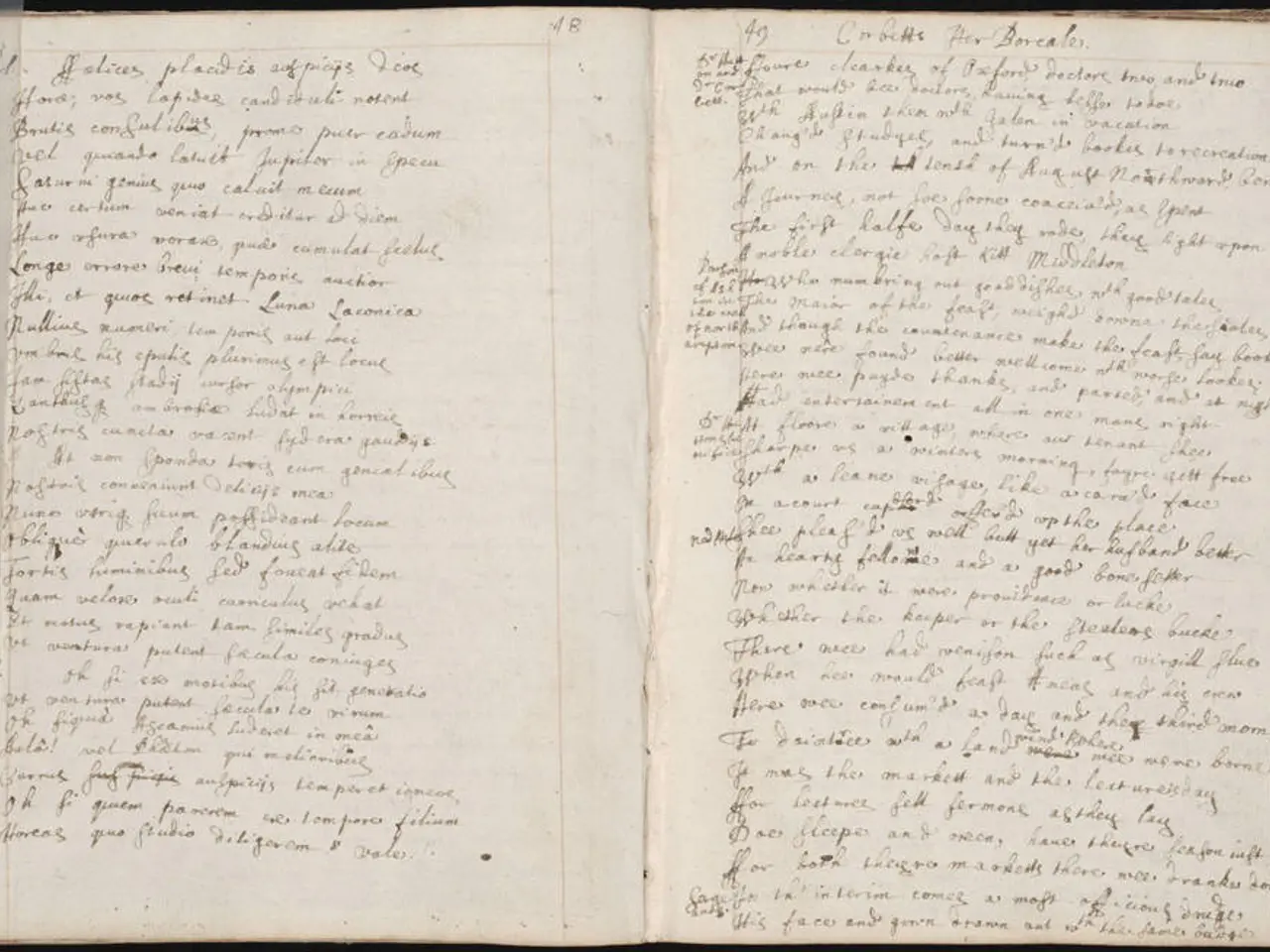Redefine Your Perspective: Your Daily Employment Isn't a Hindrance
============================================================
Many writers find themselves struggling to find time for their craft, often citing family, day jobs, or other responsibilities as obstacles. However, with the right strategies, it is possible to effectively manage time for writing alongside a day job.
In this article, we will explore several key strategies for balancing writing with a day job, including conducting a time audit, optimizing writing time based on energy levels, setting clear, achievable writing goals, creating a distraction-free writing environment, using time management techniques and tools, scheduling breaks and self-care, delegating and reducing low-value activities, increasing job satisfaction, and constantly referencing and adjusting your plan.
Conduct a Time Audit and Pinpoint Writing Windows
To identify pockets of free time, track your daily activities for about a week. This may reveal opportunities for writing during travel, breaks, or quieter moments. Use this insight to carve out consistent daily writing time, even if only 30 minutes.
Optimize Writing Time Based on Energy Levels
Identify when you feel most alert—morning, lunch breaks, or evenings—and schedule writing sessions then. Adapt your routine by testing different times to find your personal peak periods, helping to accommodate energy dips due to your job or commute.
Set Clear, Achievable Writing Goals
Use SMART goals to define specific, manageable tasks like writing 300 words or finishing a scene in 30 minutes. Breaking writing into small, focused objectives prevents burnout and leverages limited time effectively.
Create a Distraction-Free Writing Environment
Designate a tidy, comfortable space for writing, minimizing digital distractions by turning off notifications or placing your phone aside. Personal touches like inspiring objects or music can boost motivation and focus.
Use Time Management Techniques and Tools
Apply methods such as the Pomodoro Technique—working in focused bursts of 25 minutes with short breaks—to maintain both productivity and energy. Employ digital tools like calendar apps and task managers for scheduling and reminders, which help juggle writing with work commitments and travel.
Schedule Breaks and Self-Care to Maintain Energy
Incorporate regular breaks and activities like short walks or stretching to refresh your mind and body. Planning meals and snacks can also help maintain energy throughout long workdays and commutes.
Delegate and Reduce Low-Value Activities
Minimize time spent on distractions such as social media, TV, or non-essential errands by delegating tasks or cutting back, freeing time for writing and reducing overall exhaustion.
Increase Job Satisfaction to Improve Energy and Motivation
Engage with more challenging or fulfilling tasks at work to boost job satisfaction, which can positively impact your mental energy and motivation for writing outside work hours.
Constantly Reference and Adjust Your Plan
Regularly review your daily plan and adapt it based on new challenges or schedule changes, especially when balancing travel or fluctuating workload. Keeping your plan visible helps maintain focus and accountability.
Solutions to Common Challenges
- Challenge #1 solution: Write before going to work, setting the clock an extra 15 minutes early.
- Challenge #2 solution: Write when traveling by air or train, and reconsider work habits to be efficient and not overwork.
- Challenge #1 alternative: If mornings are not feasible, writing a half a page a day is better than writing nothing at all.
- Challenge #2 alternative: Avoid jobs that require endless sacrifice and constant overtime. Start designing an exit strategy from a draining day job.
Conclusion
Balancing writing with a day job demands deliberate scheduling aligned with your energy patterns, setting realistic goals, creating a supportive environment, managing breaks, and leveraging productivity tools. Addressing job satisfaction and managing distractions also play important roles in sustaining both motivation and energy for writing amid other demands. With creativity, planning, and discipline, it's possible to write regularly and have a day job.
1) Incorporate writing into your home-and-garden routine by designating a small, quiet corner as your dedicated screenplay writing space, surrounded by inspiring home decor and script-related books for motivation.
2) To make the most of your lunch break, consider using the time to work on your script, ensuring your laptop and writing tools are packed and ready to go before leaving home.
3) Achieving a balance between writing and your current lifestyle requires continuous adaptation. For instance, if you're a night owl, allot more writing time in the evenings and adjust your sleep schedule accordingly to maximize productivity while not compromising your day job responsibilities.







